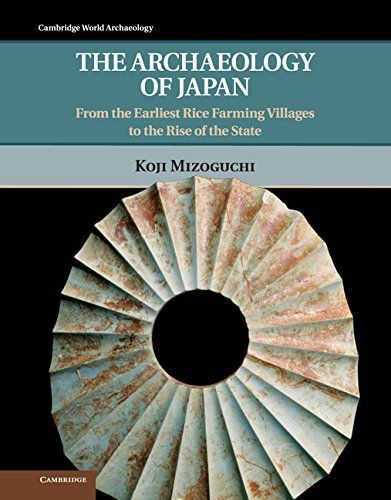
The Archaeology of Japan From the Earliest Rice Farming Villages to the Rise of the State
This is the first book-length study of the Yayoi and Kofun periods of Japan (c.600 BC–AD 700), in which the introduction of rice paddy-field farming from the Korean peninsula ignited the rapid development of social complexity and hierarchy that culminated with the formation of the ancient Japanese state. The author traces the historical trajectory of the Yayoi and Kofun periods by employing cutting-edge sociological, anthropological and archaeological theories and methods. The book reveals a fascinating process through which sophisticated hunting-gathering communities in an archipelago on the eastern fringe of the Eurasian continent were transformed materially and symbolically into a state.